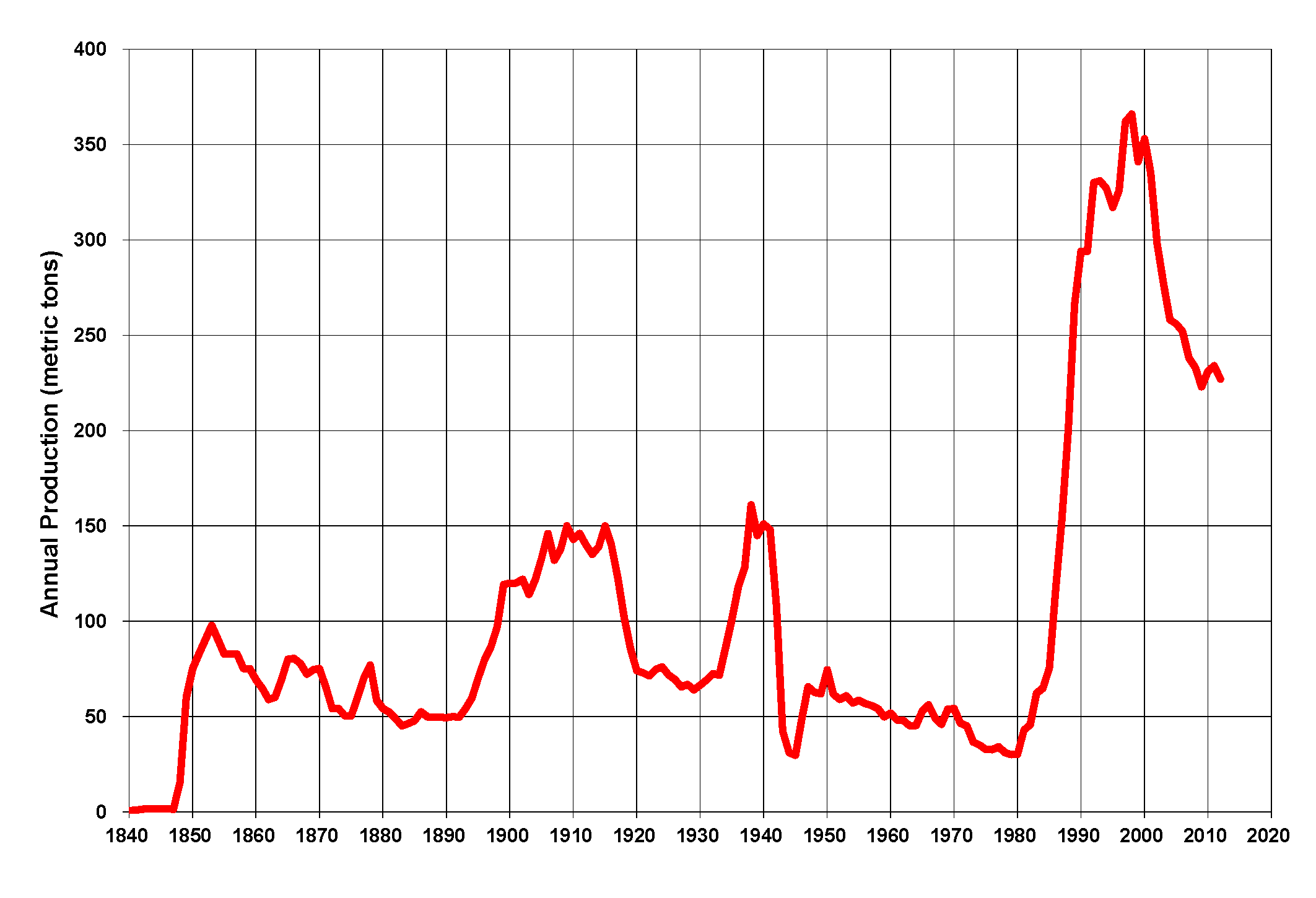All of my posts are 100% rational.
It's only your own insanity driven by utter ignorance of facts which prevents you from seeing that, FRiend.
DiogenesLamp: "You've mentioned specie many times in your rebuttals, but specie is more a product of California and Nevada, and therefore does not have anything to do with trade which was the bone of contention between the North and South."
No, sorry, but here's where you really need to exercise your weak-brain, to keep it from atrophying.
The "bone of contention" here is the claim of Lost-Causers & others that some overwhelming percentage of Federal Revenues (typically said to be 75% to 87%) resulted from Southern exports.
I am merely demonstrating that the true number was much closer to 50% and the key point to remember is that duties were never paid on exports, only on imports.
And those imports were paid for by both exports and specie transfers (i.e., gold & silver).
So once again: in 1860 total exports of goods, services and specie came to about $400 million of which around $200 million was cotton.
These $400 million in gross exports paid for $377 million in imports (from which Federal revenues derived) leaving a net-net surplus of $23 million for the year.
Point is: nobody says the South was not important, it's just that they were not quite as important as they had imagined.
We learned this for certain during the Civil War when all trade with the South ended, and yet the Northern economy quickly adjusted and continued to prosper.
DiogenesLamp: "But specie does not belong in the equation.
It is not a replenishable resource and does not represent any value of Northern produced goods.
Specie export cannot be sustained indefinitely as a major component of trade balance."
No, the fact is the US ran a trade deficit throughout this period, with imports greatly exceeding exports three years out of four, and that fourth year was usually a very small surplus.
Before 1850 specie exports were relatively small -- a few million per year, but then grew hugely reaching $56 million in 1855 and $66 million in 1860.
Those are not small numbers -- after cotton they were our single most important export.
They served to balance the accounts which paid for imports that provided Federal revenues.
Your claim that specie "is not replenishable" is as ridiculous as claiming oil or copper should not be counted because they are "not replenishable".
Of course they are all replenishable, so long as prices remain high enough to justify prospectors efforts to find more in the ground.
Here is a chart of gold production going back to 1840:
DiogenesLamp: "The only question that matters is how much foreign trade represented as a percentage of the New York/New England economy.
Stuff mined in California and Nevada was irrelevant to the New York/New England economic engine."
Wrong again.
In fact, manufactured goods shipped to Nevada or California were paid for by gold & silver (specie) mined there.
Specie then help balance the trade which paid for imports on which Federal duties funded the government.
Really, it's not that complicated, if you'll exercise your mind to grasp it.
DiogenesLamp: "Where it originated and where it went and how it got there is irrelevant to the point that New York controlled it and made a sizable chunk of money off of it."
Controls? Nobody "controls" a free market and nobody has demonstrated those markets were not free.
So far as we can tell, Adam Smith's "invisible hand" drove everyone to do what was in their own best interests and that produced amazing prosperity over many decades before 1860.
DiogenesLamp: "By splitting into another nation, the South could use foreign ships and crews to move their goods, and thereby avoid the artificially inflated prices the New England shipping people were charging..."
Maybe, but how much of those savings would have to be spent on vastly increased military forces, to protect not only against the Union, but also against European powers seeing an opportunity to abrogate the US Monroe Doctrine?
I would argue there were huge economies of scale from a continental United States that a smaller Confederacy would never see.
Regardless, none of this was argued by Confederates at the time, end of 1860, early 1861.
Instead, their entire argument was the thread to slavery from "Ape" Lincoln and his Black Republicans.
DiogenesLamp: "Economic Independence for the South represented a *DIRE* threat to existing interests in New England.
The loss of trade was just the immediate impact.
The eventual creation of competing industries was another, and even more deadly threat to the well connected Elite of New York. "
Maybe, but I'll say it again: turns out that Southern products were not as important as many imagined, so Northern industries quickly adjusted and continued to prosper without them from 1861 on.
DiogenesLamp: "That the South didn't use much of it's own ships or shipping industries is pretty evident. *WHY* they didn't use their own ships and shipping industries is not."
First of all, it's not demonstrated that Southerners were less involved in shipping that anyone else.
So much more is being assumed that the available data justifies.
Second, it is often mentioned by historians that many Southerners of the time idealized their plantation life-styles and did not want to become involved in either dirty factory work or the hustle-bustle of big city life.
They were generally content to let such low-status work to others.
So again I'll mention -- all your sophisticated economic analysis may even be somewhat correct, however, those are not the arguments used by Southern Fire Eaters at the critical time of declarations of secession in late 1860 and early 1861.
Again, their chief concern was to protect slavery and their way of life which depended on it.